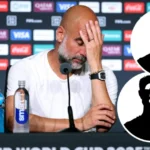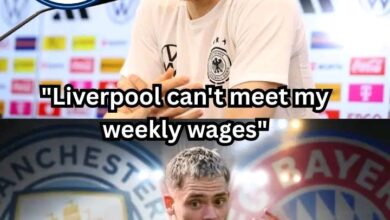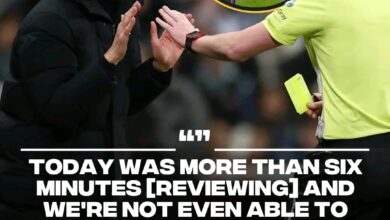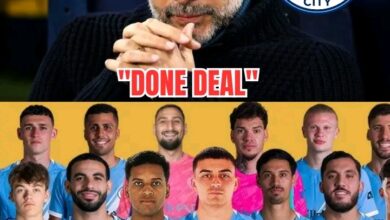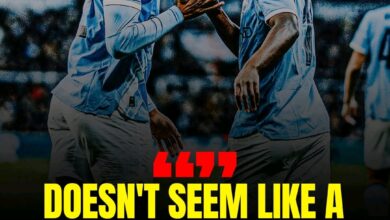Manchester City have just made something very clear about Vitor Reis’ future at the Etihad
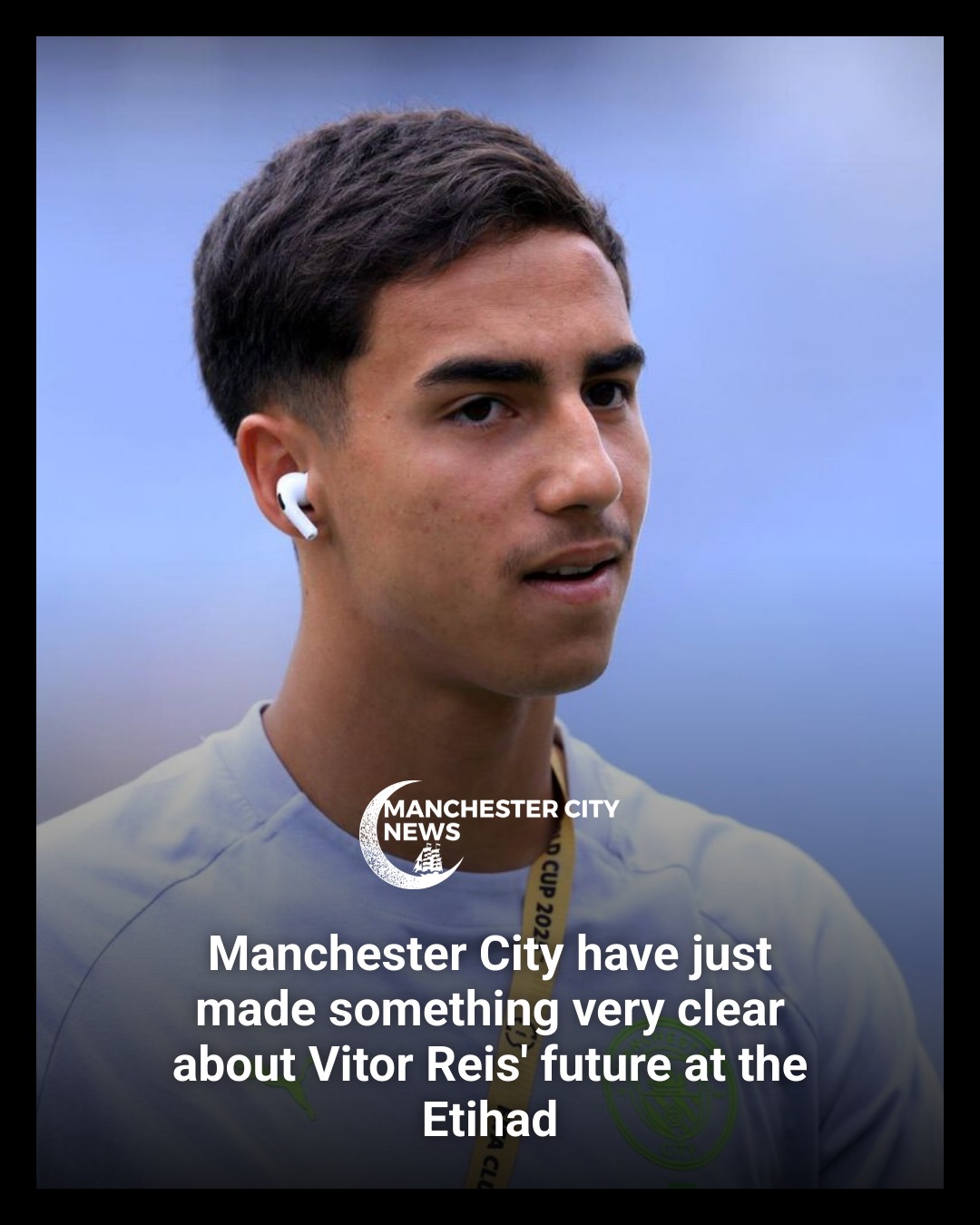
The summer transfer window has become increasingly complex for elite football clubs, with Manchester City finding themselves at the epicenter of this challenge as they prepare for the 2025/26 season. Under the meticulous guidance of Pep Guardiola, the Premier League champions are undertaking a comprehensive squad restructuring that reflects both the manager’s evolving tactical preferences and the broader financial realities of modern football.
The Guardiola Philosophy: Quality Over Quantity
Pep Guardiola’s approach to squad management has always been predicated on working with a carefully curated group of players who can execute his intricate tactical systems. As the 2024/25 season drew to a close, the Catalan tactician made his intentions abundantly clear: he would prefer to work with a more streamlined squad for the upcoming campaign. This declaration has set in motion a series of strategic decisions that will shape Manchester City’s roster for the foreseeable future.
The legendary coach’s preference for a smaller, more focused group stems from his belief that every player in the squad should serve a specific purpose within his tactical framework. Rather than maintaining a large roster where players might struggle for meaningful minutes, Guardiola has consistently advocated for a system where each member of the squad understands their role and can contribute effectively when called upon. This philosophy has been a cornerstone of his success at previous clubs, including Barcelona and Bayern Munich, and continues to guide his decision-making at the Etihad Stadium.
The challenge facing Manchester City’s hierarchy is particularly acute this summer, as the club has been active in the transfer market, securing the services of five new players. While these acquisitions represent strategic investments in the club’s future, they have also created a mathematical problem: too many players competing for too few positions. The influx of new talent, while exciting for supporters, has necessitated a corresponding exodus to maintain squad balance and comply with both Guardiola’s preferences and practical considerations such as squad registration limits and wage bill management.
The Transfer Market Dynamics: Easy Exits and Complex Cases
Within the current Manchester City squad, certain players present more straightforward exit opportunities than others. The club’s approach to trimming the roster has been methodical, identifying players based on market demand, contractual situations, and their fit within Guardiola’s long-term vision.
James McAtee has emerged as the primary focus for Manchester City’s departure planning, and for good reason. The 22-year-old midfielder represents what could be considered an ideal scenario for both club and player. McAtee’s situation illustrates the complex nature of modern football development, where promising young talents often find themselves caught between the desire for first-team football and the prestige of remaining at elite clubs.
The midfielder’s profile makes him an attractive proposition for numerous clubs across Europe. At 22, he possesses the perfect combination of youth and experience, having demonstrated his capabilities in various loan spells while maintaining his connection to Manchester City’s academy system. His technical abilities, developed through years in City’s renowned youth setup, align with the modern game’s demands for versatile, technically proficient players. This combination of factors has generated significant interest from potential suitors, making him what club officials consider the “easiest player to sell” in their current roster.
The interest in McAtee reflects broader trends in the transfer market, where young English talent commands premium prices and attracts attention from clubs looking to comply with homegrown player regulations. His departure would not only help trim Guardiola’s squad but could also generate significant revenue that could be reinvested in other areas of the team or help balance the books following their summer acquisitions.
The Complex Cases: Grealish and Phillips
In stark contrast to McAtee’s situation, Manchester City faces significantly more challenging scenarios with Jack Grealish and Kalvin Phillips. These cases highlight the complexities that can arise when high-profile signings fail to meet expectations or find themselves surplus to requirements.
Jack Grealish’s situation represents one of the most intriguing puzzles in Manchester City’s current roster management. The England international arrived at the Etihad Stadium in 2021 for a then-British record fee of £100 million, carrying enormous expectations and the weight of being one of the most expensive players in football history. While Grealish has contributed to the team’s success, including their historic treble-winning campaign, questions have persisted about his role in Guardiola’s system and whether he has fully justified his substantial transfer fee.
Finding a suitable destination for Grealish presents multiple challenges. His significant wages, reflective of his status as a marquee signing, immediately narrow the field of potential suitors to a select group of elite clubs with the financial resources to accommodate such an investment. Additionally, the player’s own preferences and career ambitions must be considered, as a move away from Manchester City could be perceived as a step backward in his career trajectory.
The market dynamics surrounding high-profile players like Grealish are particularly complex. While his talent is undisputed, potential suitors must weigh the financial commitment against the uncertainty of how he might adapt to a new system and environment. This creates a challenging negotiation landscape where Manchester City may need to accept a significant financial loss on their original investment or contribute to his wages at a new club to facilitate a move.
Kalvin Phillips presents an even more complicated scenario. The former Leeds United captain’s move to Manchester City was initially viewed as a shrewd acquisition, bringing Premier League experience and England international credentials to strengthen the squad’s depth. However, his integration into Guardiola’s system has proven challenging, with limited opportunities highlighting the difficulties some players face in adapting to the manager’s demanding tactical requirements.
Phillips’ situation underscores the unpredictable nature of football transfers, where players who excel in one system may struggle to replicate that success in different tactical environments. His case has become emblematic of the challenges facing clubs when expensive acquisitions fail to meet expectations, creating both sporting and financial dilemmas that require careful resolution.
The Loan Strategy: Developing Future Assets
Manchester City’s approach to young talent development has increasingly relied on strategic loan arrangements that allow promising players to gain valuable experience while maintaining their connection to the club. Vitor Reis and Claudio Echeverri represent the next generation of talent that City hopes to develop into first-team contributors, but their immediate futures require careful planning.
The loan market has become an essential component of modern football’s ecosystem, particularly for clubs operating at Manchester City’s level. Young players often find themselves in a challenging position where they possess significant potential but lack the experience necessary to contribute immediately at the highest level. Strategic loan placements offer a solution that benefits all parties involved: the parent club maintains control over the player’s development, the receiving club gains access to promising talent, and the player receives crucial first-team experience.
Vitor Reis, the Brazilian talent, has been at the center of speculation regarding his immediate future. The defender’s situation illustrates the global nature of modern football development, where young players from South America are increasingly integrated into European club systems at earlier stages of their careers. His potential loan move represents an investment in his long-term development, allowing him to adapt to European football while gaining the experience necessary to eventually contribute to Manchester City’s first team.
Similarly, Claudio Echeverri’s situation reflects Manchester City’s commitment to identifying and developing talent from across the globe. The Argentine midfielder’s integration into the club’s system requires careful management, balancing his immediate development needs with the long-term vision of his contribution to the first team.
The Girona Connection: Strategic Partnerships in Modern Football
The relationship between Manchester City and Girona FC represents a fascinating example of how modern football clubs are leveraging strategic partnerships to optimize player development and squad management. As part of the City Football Group network, Girona provides an ideal destination for young Manchester City talents to gain experience in a competitive environment while remaining within the organizational structure.
Initial reports suggested that both Reis and Echeverri were being considered for loan moves to the Spanish club, with Reis identified as the more likely candidate for such an arrangement. This potential move would have provided the Brazilian defender with valuable La Liga experience while allowing Manchester City to maintain close oversight of his development through their established relationship with Girona.
However, recent developments have altered this trajectory. According to Brazilian journalist Andre Hernan, Reis will not be joining Girona on loan this summer, representing a significant shift in the club’s planning for the young defender. Instead, he is expected to return for pre-season training with the rest of the Manchester City squad on July 28, suggesting that Guardiola and his coaching staff have decided to keep him closer to the first-team environment.
This decision reflects the fluid nature of transfer planning, where initial strategies can evolve based on various factors including player development assessments, first-team needs, and market opportunities. The choice to retain Reis for pre-season training indicates that the coaching staff may see immediate potential for his integration into the squad or wish to conduct a more thorough evaluation of his readiness for first-team involvement.
The Broader Context: Financial Fair Play and Squad Management
Manchester City’s squad trimming exercise must be viewed within the broader context of Financial Fair Play regulations and the evolving landscape of football economics. Modern clubs operate under increasingly stringent financial oversight, requiring careful balance between investment in new talent and the management of existing assets.
The club’s summer acquisitions, while strategically important, have created a domino effect that necessitates corresponding departures. This dynamic reflects the reality of operating at the highest level of football, where continuous improvement must be balanced against regulatory compliance and financial sustainability.
The decisions surrounding player departures are rarely purely sporting considerations. Contract values, amortization schedules, and wage structures all play crucial roles in determining which players might be moved on and under what circumstances. This complex financial landscape requires sophisticated planning and often influences sporting decisions in ways that may not be immediately apparent to observers.
Looking Ahead: The 2025/26 Season and Beyond
As Manchester City continues to navigate this complex squad management challenge, several key questions remain unanswered. The ultimate composition of Guardiola’s squad for the 2025/26 season will depend on the club’s success in facilitating departures for players deemed surplus to requirements while ensuring that the remaining group can compete effectively across multiple competitions.
The retention of Vitor Reis for pre-season training suggests that Guardiola may be considering integration opportunities for young talents earlier than initially anticipated. This approach could provide valuable depth while addressing his preference for a more streamlined squad by ensuring that every player serves a clear purpose within the tactical framework.
The resolution of the situations surrounding Grealish and Phillips will likely extend into the latter stages of the transfer window, requiring patience and potentially creative solutions to find suitable destinations for both players. These cases may ultimately serve as important precedents for how Manchester City handles similar situations in the future.
As the July 28 pre-season reporting date approaches, Manchester City’s squad management strategy continues to evolve. The decisions made in the coming weeks will not only shape the immediate prospects for the 2025/26 season but will also establish important precedents for how the club balances Guardiola’s tactical preferences with the practical realities of modern football management. The success of this delicate balancing act will ultimately be measured not just in trophies won, but in the sustainable development of talent and the maintenance of the club’s position at the pinnacle of world football.





